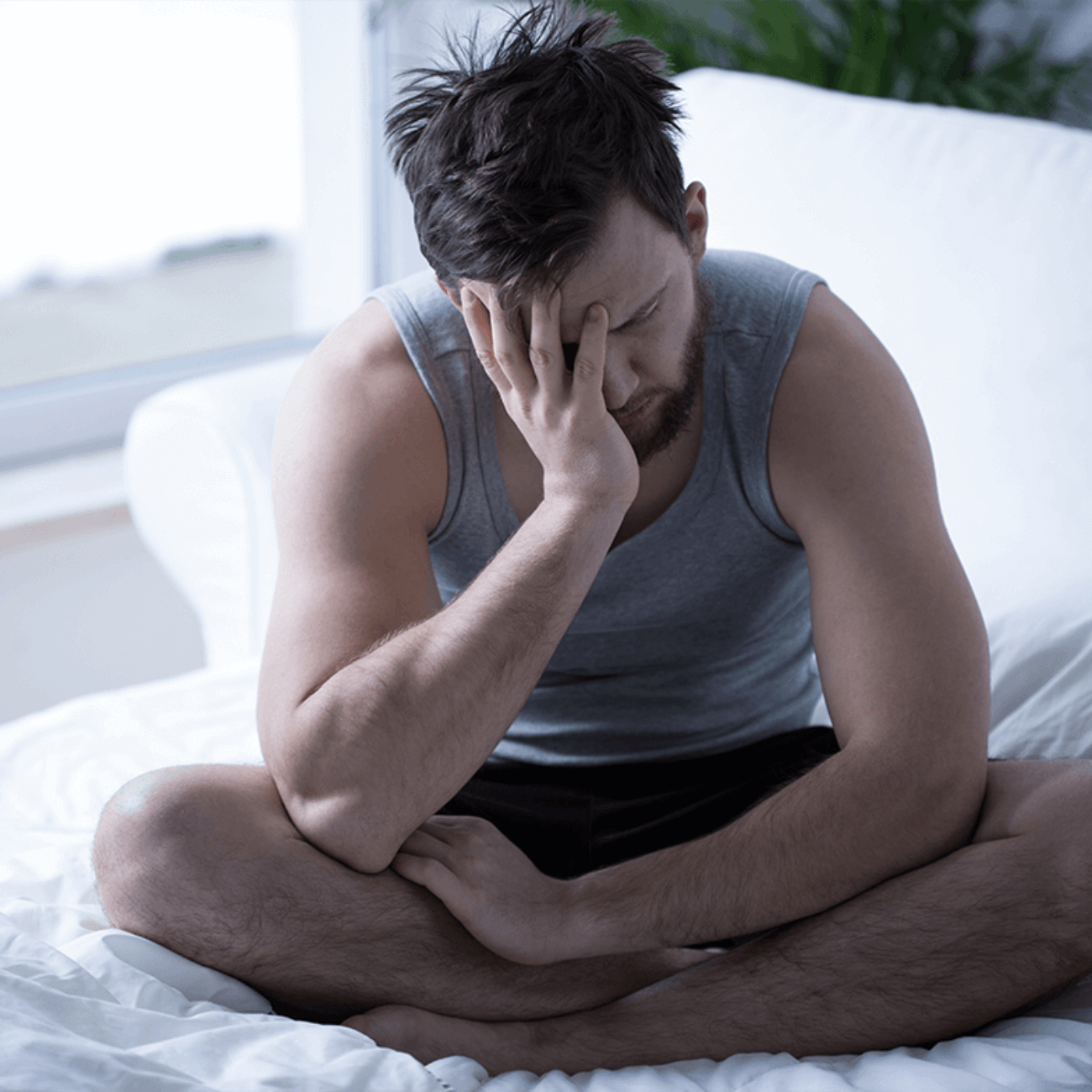There’s lots of good advice out there about creating a healthy sleep environment, and falling back asleep if you wake up in the middle of the night. But a big part of getting good sleep is getting into a healthy, consistent routine during the day so you wake up refreshed every morning. Generally speaking, your day starts in the morning and ends at night. So it’s important to stay in sync with your 24-hour cycle.
Right on time
Your body wants a set schedule for sleeping, eating, and other biological functions. This internal schedule is referred to as our circadian rhythm.¹ Bodies do a great job staying on track, but also rely on external signals like daylight, temperature, even exercise.¹
If a person is in tune with their circadian rhythm, they can easily go to sleep and wake up at the same time every day. It’s also easier drift off to sleep at night, allowing the body to get the rest it needs before waking refreshed in the morning.¹

Good sleep loves a regular routine
Life gets hectic and sleep disruptions happen. An inconsistent sleep schedule can leave you feeling out of sorts. But the good news is that a consistent sleep schedule is an achievable goal — and can lead to a happier, healthier life.
Try these simple steps to get yourself on a regular sleep schedule:
- Make gradual adjustments. If you’re trying to move your bedtime from midnight to 10 p.m., try going to bed 15 minutes earlier each night until you adjust. This is more effective than doing it all at once.²
- See the morning light. Your internal clock is sensitive to light, and being exposed to sunlight first thing in the morning helps your body wake up. Open the curtains in the morning, or better yet, step outside.2
- Shut it down. Exposure to light at nighttime can signal your body to stay awake. Try your best to stay away from TV, computers, and smartphones for at least an hour before bed as your eyes are sensitive to the blue light emitted from these devices.2
- Stop the snooze. As tempting as it can be to grab a few extra Zs, the rest you get after hitting the snooze button isn’t high-quality sleep. Better to set the alarm for when you need to get up, then give your body a few minutes to adjust to being awake.2
Better bedtimes start with better mealtimes
Eating and sleeping have a codependent relationship.3
Early mornings and a mug of hot coffee go hand in hand. And caffeine is the energized medicine of choice when it comes to keeping groggy, heavy eyelids from closing after a rough night's sleep.
But just like that cup of coffee helps you stay awake, what and when you eat can help you get to sleep. Make the wrong choice at the dinner table, or when reaching for a late-night snack, and you could be looking at a long night.
Alcohol
Drinking alcohol can help you fall asleep quickly. But when the alcohol wears off, you can wake during the most important and restorative stages of sleep.3
Pro tip: Try a glass of tart cherry juice before bed. Tart cherries are a natural source of melatonin, a sleep hormone.3
Spicy foods
Before you reach for that bottle of hot sauce, keep in mind that spicy foods can cause heartburn, which can impact your sleep.3
Pro tip: Avoid spicy foods, or anything that gives you acid reflux, at least three hours before bedtime.3
Cut out the late-night snacks
Eating too close to bedtime can lead to interrupted sleep. In fact, one study revealed that people who ate within three hours of bedtime woke up more often than those who avoided a late-night snack.6
Pro tip: Try eating dinner at least three hours before turning out the light. And keep nighttime snacking to a minimum.6
Rise and shine
Getting regular exercise promotes good sleep,4 and maintaining a healthy weight can even help you stop snoring.5 But it’s important to recognize that when you exercise has a big beneficial impact on sleep quality.
Morning
Morning exercise can help you sleep longer at night. In fact, people who run on a treadmill at 7 a.m. have been shown to sleep longer and have deeper sleep cycles than those who exercise in the afternoon or evening. Outdoor exercise is even better, as the exposure to sunlight helps keep your sleep/wake rhythm on track.4
Noon
Afternoon workouts are also beneficial to your sleep. After working out, it typically takes four to five hours for your body to cool down. This means your body temperature will start to lower closer to bedtime, which is also a natural signal that it's time for some shut-eye.4
Night
Every person reacts to working out differently. If you like to exercise at night, be aware that strenuous cardio exercises can raise your body temperature and heart rate, which can make it difficult for you to fall asleep.4

Rest assured
If you’re having trouble getting into a regular sleep routine, it’s good to know that there’s a variety of effective sleep remedies available over the counter.
Choosing the right sleep-aid is simply a matter of doing a little research and talking to your doctor.
Unisom® is the #1 doctor-recommended OTC sleep-aid brand, offering a range of options to help you fall asleep and wake up feeling refreshed.
Unisom Simple Slumbers® is our 100%-drug-free solution. It works with your body to help maintain its natural sleep cycle. It uses melatonin, which helps you fall asleep gently and wake up refreshed.†
Unisom® SleepGels®, SleepMelts®, SleepMinis®, and PM Pain all contain the histamine blocker diphenhydramine HCl. Blocking histamine production can help you fall asleep faster and stay asleep. PM Pain also contains the pain reliever acetaminophen, which helps relieve minor aches and pains that may keep you awake.
Unisom® SleepTabs® contain doxylamine succinate, which is a clinical-strength histamine blocker that works in a similar fashion to diphenhydramine. Unisom® SleepTabs® can help you fall asleep 33% faster and get a full night's sleep.
Find the Unisom® product that’s right for you.
Professional References
1. American Sleep Association, Editors. Circadian Rhythm and Sleep, American Sleep Association.
2. National Sleep Foundation, Editors. How to Get on a Sleep Schedule. Sleep.org.
3. Johns Hopkins Medicine, Editors. Better Sleep: 3 Simple Diet Tweaks, Johns Hopkins Medicine.
4. National Sleep Foundation, Editors. What You Should Know About Sleep and Exercise, National Sleep Foundation. November 17, 2020.
5. Cleveland Clinic, Editors. Is Your Spouse a Heroic Snorer? 3 Tips to Quieter Sleep, Cleveland Clinic.
6. Sleep.org, Editors. What to Eat to Sleep Better at Night, Sleep.org. March 5, 2021.
Related articles
†These statements have not been evaluated by the Food and Drug Administration. This product is not intended to diagnose, treat, cure or prevent any disease.


.png)
